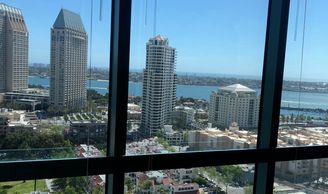Call or Write for a Free Confidential Consultation
If you or someone you love need an aggressive and compassionate attorney who will listen and aggressively protect your interest, we invite you to call attorney Brad for a free consultation.
$0 Upfront
There is no money upfront to hire me.
$0 Unless We Win
No Fee – Unless We Win
$13,000,000.00+ Won for Clients
I’ve won $13 million dollars for my clients.
98% Success Rate
I’ve won 98% of my clients’ cases.
Insurance Insider
I’ve worked at a major national law firm serving big name insurance companies by defending insurance companies and their insureds who were sued for millions of dollars.
I Care
My success is measured in the real differences made to my clients’ quality of life. I focus on achieving the most exceptional and fairest compensation for my clients.
TYPES OF PERSONAL INJURY CASES I HANDLE
Car Accident Lawyer
I have served hundreds of injured persons. Also, I have worked at a national law firm hired by big-name insurance companies to defend big businesses against high stakes lawsuits stemming from car accidents. I know all the tricks the insurance companies use to minimize money payment to injured persons. Learn More
Motorcycle Accident Lawyer
I own and ride a Honda CBR500. I understand the unique challenges of being a rider in an ocean of cars. A motorcycle accident can occur anywhere and at an instant which may result in life-changing injuries. As a rider, I have a unique insight to protect your interest and ensure you are fairly compensated for your injuries.
Trucking Accident Lawyer and Commercial Vehicle Accident Lawyer
I’ve helped major insurance companies defending truckers in severe injury cases which include traumatic brain injuries. I have a unique insight into how big insurance companies defend trucking accidents. I will fight hard to ensure you are fairly compensated for your injuries.
Uber Accidents Lawyer
I have worked at a major national law firm hired by the insurance company to defend Uber drivers. I’ve defended Uber drivers in severe injuries cases and know how insurance companies defend injury cases.
Taxi Accident Lawyer
I have worked at a major national law firm hired by the insurance company to defend taxi drivers; I’ve defended taxi drivers sued in serious injuries cases and know how insurance companies defend injury cases.
Trip and Fall Injury Lawyer
Trip and fall cases are challenging because of the complexity of the issues involved. To establish liability, trip and fall cases may require safety engineers, structural engineers, or any other experts qualified to testify regarding the standard of care in the specific situation and whether it was breached.













